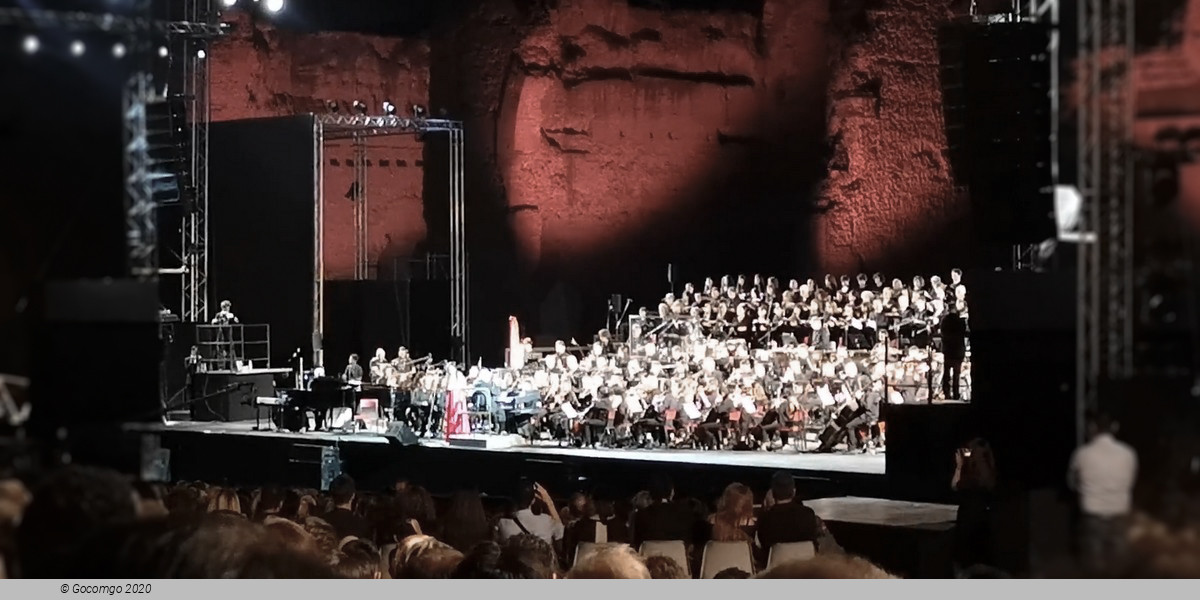Baths of Caracalla (Rome, Italy)
There are no events to show for 1 - 30 Apr 2025.
Baths of Caracalla

On 27 July 1937, the Governor of Rome Piero Colonna had summoned the representatives of the press to illustrate the previously deliberated initiative, which envisaged the construction of an open-air theater within the archaeological complex of the Baths of Caracalla and the consequent performances of operas starting from the following August 1st.
The Roman summer of the "twenty years" was enriched with a further space dedicated to music and in particular to melodrama, since, it should be remembered, that the orchestra of S. Cecilia performed, during the summer period, at the Basilica of Maxentius.
In reality it was born as an experiment, according to the words of the Governor, which turned into an unmissable appointment both for citizens and for especially international tourism. It was also decisive for the definitive arrangement of the structures of the then Royal Opera House and for the working continuity of all the technical and artistic employees.
Defined with the wording "Teatro del popolo" it became increasingly connoted as an expression of a rediscovered and affirmed popular taste. In this regard, it is fair to recall that in 1937 Verona inaugurated its twenty-first opera season at the Arena.
The stage with its technological systems, designed and set up by Pericle Ansaldo, was positioned inside one of the classrooms located next to the tepidarium , due to its size, 1500 square meters of surfaces and a 22 m proscenium, it became the largest stage of the world. The stalls had 8,000 seats, divided into six sectors.
The first season was actually short, just eight days with five performances in total, three of Lucia di Lammermoor and two of Tosca. “Unforgettable show in a unique setting in the world; of such a suggestive power as to seem unreal”, with these words began the article that appeared in Il Giornale d'Italia on 8 August 1937.
The following year the works increased to six ( La Gioconda , Mefistofele , Aida , Lohengrin , Isabeau directed by Mascagni himself, and Turandot ) for a total of 28 performances, starting from June 30th and ending on August 15th. The substantial change however was that of the new and definitive location of the stage inside the exedra of the calidariumand the expansion of the stalls which was brought to a capacity of 20,000 seats. Because of the war, the summer opera season in Caracalla was suspended until 1944. It will resume in 1945 in a triumphal way. From that year until 1993 it was a very important point of reference for musical culture and perhaps the most evocative place among those dedicated to open-air entertainment.
Unfortunately, on August 14, 1993 the curtain finally fell on the Theater at the Baths of Caracalla.
Since 2001 the shows have resumed at the Theater at the Baths of Caracalla with a new logistical situation, in which the monumental ruins are no longer an integral part of the stage and therefore of the show itself, remaining in any case a unique and extraordinary setting for the Summer Opera Season and of Ballet of the Teatro dell'Opera of Rome.

